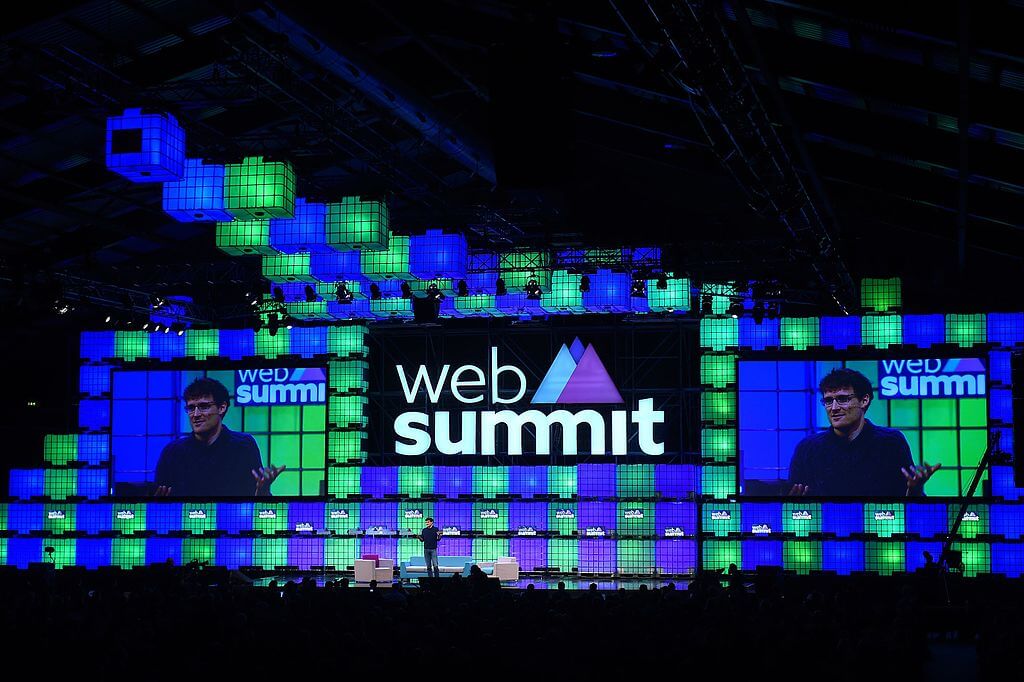Web Summit has become one of the world’s largest technology conferences. When it started in 2010, there were just 400 attendees. This week nearly 60,000 people descended on Lisbon the Web Summit 2018 – it really is ‘where the tech world meets’. Not surprising a multitude of topics were discussed over the four days, but we’ve distilled this to five key trends for marketers:
Immerse into the World of AR
The simple fact that artificial reality was covered as the first topic on the centre stage shows this innovation is going mainstream. Changing the way people shop is only the beginning. (Amazon’s latest update allows customers to see their products in their house before they purchase). Putting technology into the hands of consumers is important for advertisers to provide real, valuable experiences and engage emotionally, so the big question is: are AR and VR being fully embedded as a key platform to tell brand stories in 2018? The recent launch of ARKit on iOS, a game-changing new technology, is making AR far more accessible than ever before. Smartphones and mobile devices account for over 70% of internet consumption, and more and more brands are invested in digital transformation.
The Power of Personalisation
A fantastic session from Dr Oz, the founder of Sharecare, discussed the huge advances in healthcare and the need to provide personalised experiences. Sharecare is a digital platform designed to help people to improve their health, combining data and technology. Outside of the healthcare industry, we’re seeing similar developments as the need for better target segmentation becomes more important. Not only do we, as consumers, want to feel like we’re getting a completely unique experience, brands want to connect with us in a one-on-one space. But there is fine line between encroaching in our personal space and giving us exactly what we want and advertisers need to very mindful of this. The key focus must be for the industry to use data effectively so that brands make valuable connections with consumer. It’s not enough to focus on reach alone, quality of engagement and interaction is critical.
AI, AI and more AI
The debate about the rise of robots raged at Web Summit. The big question was: will AI save us or destroy us? Advocates of artificial intelligence included Max Tegmark from the Future of Life Institute, who refers to a world where AI plays a positive role as long as we (the humans) win the wisdom race. The highlight was meeting two robots: Professor Einstein Robot and Sophia the Robot, giving us a powerful glimpse into what human like robots could do in the future. The robot version of Albert Einstein warns that humanity is destroying itself, an alarming view that robots could replace humans. The jury is out on this. As Stephen Hawking said: “The rise of powerful AI will either be the best or the worst thing ever to happen to humanity”. For brands it’s imperative to be prepared and really consider the impact on business growth. Zenith is pioneering advanced machine learning techniques that are enabling ground-breaking automation of digital planning and driving the effectiveness of digital investment.
Clearing the path for innovation
A session focusing on restricting anti-competitive behaviour across European markets really highlighted a key issues that advertisers need to consider. EU Commissioner for Competition Margrethe Vestager warned against companies using the power and influence to engage in anticompetitive practices. She asserted that we must build the right framework for smaller companies to innovate in a world that is currently dominated by the big tech giants. So what could our digital and tech eco-system look like in another 10 years’ time? There is a huge opportunity for advertisers to create the right framework for growth by investing in constructive partnerships that allow for co-creation. There is going to be a greater need for brands to have new and better capabilities so all parties – big and small – need be involved in the drive for innovation and invention.
The rise of interfaces
Stan Chudnovsky, Facebook’s head of product for Facebook Messenger, said on stage: “I believe that messaging will be a fundamental change how brands communicate online with consumers in the next decade.” Facebook has heavily invested in this, with over 100,000 developers building conversational user interfaces inside Messenger. Facebook launched their latest feature which allows brands to integrate Messenger into their websites, at Web Summit, opening up lots of opportunities for brands to build loyalty and provide more meaningful and authentic experiences. It’s essential that advertisers analyse the consumer journey and assess how to make conversations part of their future growth strategies.




